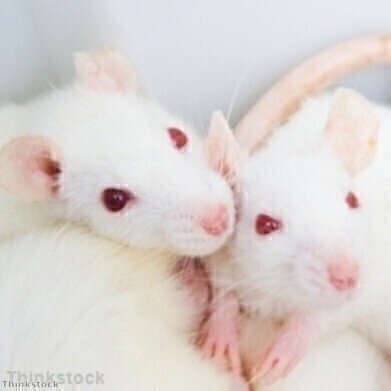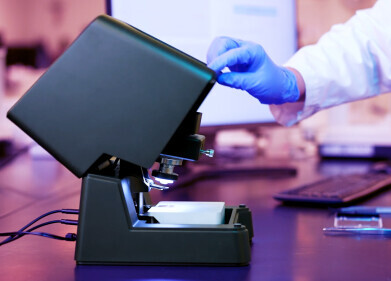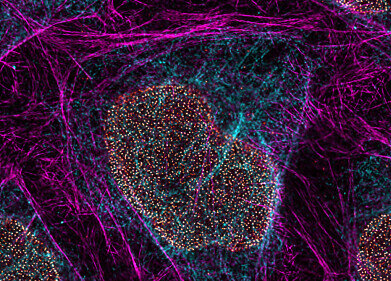-
 Laboratory testing found that a smell aversion was passed to mice's offspring
Laboratory testing found that a smell aversion was passed to mice's offspring
Microscopy & Microtechniques
Memories of events 'passed on through DNA'
Dec 02 2013
Laboratory testing on animals has suggested that genetic memory could pass on behaviours linked to traumatic events to offspring. A new study, published in the journal 'Nature Neuroscience' has found that traumatic events may affect DNA that is found in sperm, which could be passed on to offspring in a way that alters their behaviour and the development of their brains.
Researchers worked to train mice to avoid a smell that was similar to cherry blossoms and it was found that this aversion to the scent was displayed by their "grandchildren". The research has been linked to similar testing done into the genetic anxieties and phobias.
Scientists from Emory University School in Medicine, US, looked at sperm's response to the introduction of a fear of the scent. It was found that the part of the DNA that signalled a higher sensitivity for the smell was more active within the sperm.
This sensitivity was passed onto two generations of the mice's offspring, resulting in both generations avoiding the smell, even when they had never before experienced it. It was also found that the different generations had a slightly different brain structure, which could suggest that development was altered by the trained aversion in the parent mice.
"The experiences of a parent, even before conceiving, markedly influence both structure and function in the nervous system of subsequent generations," the report said.
The research suggests that the experiences of one generation could alter their genetics, with this alteration being passed on to their offspring. Ultimately this could mean that infants are born with innate fears that they have been given via their parents' DNA.
Doctor Brian Dias, one of the researchers on the study, told the BBC: "This might be one mechanism that descendants show imprints of their ancestor.
"There is absolutely no doubt that what happens to the sperm and egg will affect subsequent generations."
The study suggested that some of the scent could end up within the bloodstream, which could then go on to alter the production of the sperm. Alternatively it is possible that a signal from the brain in reaction to the smell was received the sperm, which then led to the altered DNA.
Digital Edition
Lab Asia 31.2 April 2024
April 2024
In This Edition Chromatography Articles - Approaches to troubleshooting an SPE method for the analysis of oligonucleotides (pt i) - High-precision liquid flow processes demand full fluidic c...
View all digital editions
Events
Apr 22 2024 Marrakech, Morroco
Making Pharmaceuticals Exhibition & Conference
Apr 23 2024 Coventry, UK
Apr 23 2024 Kintex, South Korea
Apr 23 2024 Seoul, South Korea
Apr 24 2024 Jakarta, Indonesia







.jpg)









